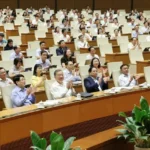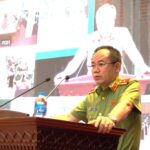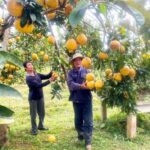In an interview with Tien Phong Newspaper, Mr. Tran Cong Thang, Director of the Institute of Strategy, Agriculture and Environment, analyzed the opportunities, challenges, and solutions for the agricultural sector in the new context.
– With the expansion of administrative boundaries, the amalgamation of land and resources, and the emergence of new coastal provinces, what opportunities do you foresee for the agricultural sector?
– The expansion of administrative boundaries and the merger of provinces create a vast space for agricultural economic development, integrating multiple resources, and offering distinct opportunities to establish a more modern, large-scale, and sustainable agricultural industry.

Mr. Tran Cong Thang
Firstly, the merger expands the arable land area, allowing for concentrated and large-scale production. Previously dispersed and fragmented lands can now be rezoned as strategic raw material zones, fostering specialized models such as shrimp-rice, fruit trees, concentrated livestock farming, and coastal aquaculture.
For instance, the merger of Hung Yen and Thai Binh provinces combines the strengths of fruit tree and livestock farming (Hung Yen) with rice production and coastal aquaculture (Thai Binh), resulting in a more diverse and flexible agricultural ecosystem.
Secondly, it facilitates the development of regional linkages and the reorganization of the value chain, encompassing production, processing, and consumption over a more extensive area. For example, the Central Highlands, with its robust coffee and pepper industries, can link with the Southeast region, home to processing plants, logistics hubs, and export centers, to establish a high-value agricultural product chain.
Thirdly, larger provinces have enhanced investment attraction capabilities. The integration of land, population, infrastructure, and resources enables the establishment of extensive raw material regions, a prerequisite for attracting businesses to invest in high-tech, green, and sustainable agriculture.
The merger of Can Tho, Hau Giang, and Soc Trang would result in a modern agricultural production, processing, and logistics hub, capable of accommodating substantial foreign investment. High-quality rice from Soc Trang or brackish shrimp from Hau Giang could be processed in Can Tho’s factories, targeting high-value exports.
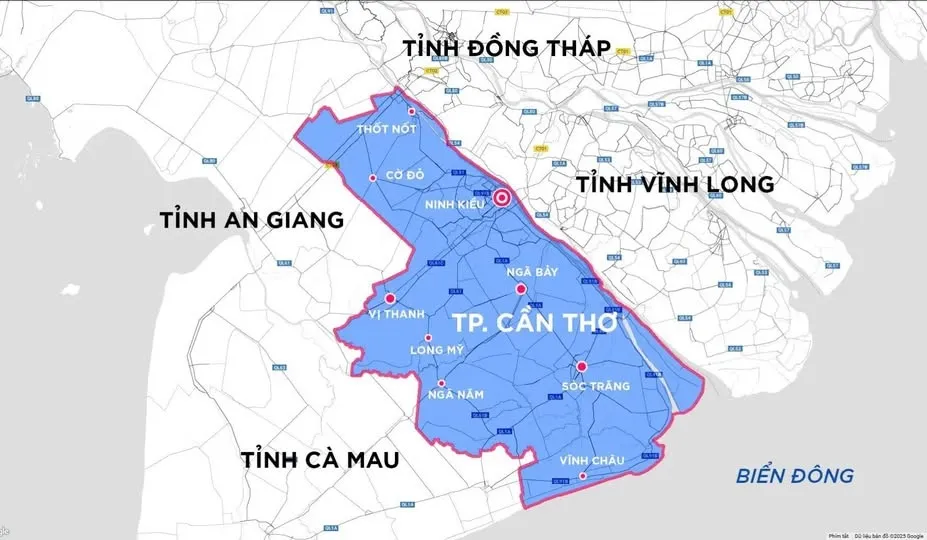
“The merger of Hau Giang and Soc Trang with Can Tho will be a strategic boost, forming an agricultural-industrial-export hub…” affirmed Mr. Thang.
– As you mentioned, mergers present significant advantages, but what do you think will be the most significant challenge in developing large-scale post-merger agricultural economics?
There are several challenges to development. The variation in natural conditions, production types, and development mindsets among provinces poses a significant obstacle. Some provinces excel in rice production, while others focus on fruit trees or aquaculture, making it challenging to establish a unified agricultural development strategy without flexible and ecologically-minded planning.
The overlap and contradictions between old plans hinder the re-planning of raw material regions, processing infrastructure, and logistics. Moreover, disputes over land, irrigation water, and budget allocation between agriculture and other sectors may arise.
Differences in management and production organization between localities also create difficulties in transitioning to new models. Farmers may feel unsure about the changes and may lack the necessary information, technical support, and policies to adapt.
Additionally, small-scale production still accounts for a significant proportion, while the cooperative mechanism is weak and lacks capacity. Finally, constraints related to capital, inadequate agricultural infrastructure, skill deficiencies, and an aging workforce need to be addressed to build a modern, large-scale, and sustainable agricultural industry.
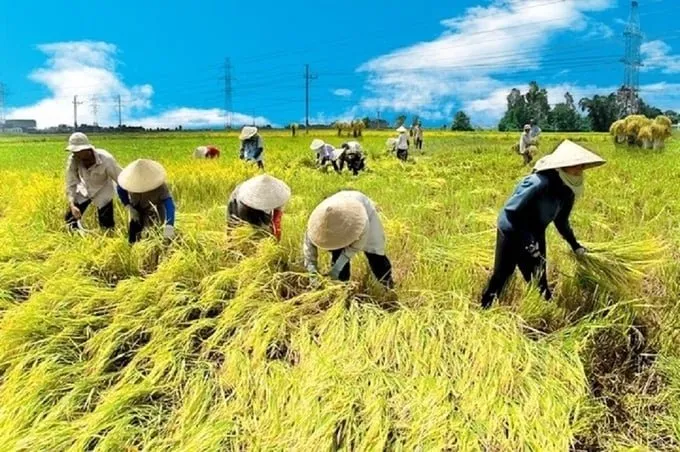
Mergers open up development opportunities for the agricultural economy. Illustration: IT.
– In your opinion, how should farmers, cooperatives, and businesses transform and adapt following the provincial mergers?
To adapt to the new model, stakeholders need to shift their mindset and reorganize their production methods. Provincial-level managers must view production from a regional, inter-provincial perspective, rather than being confined to old administrative boundaries. It is essential to plan flagship products, identify key value chains, invest in synchronized infrastructure, and promote land accumulation.
Farmers should transition from individual production to cooperative linkages through cooperatives or enterprises, adopting digitization and safe production practices to meet market demands.
Cooperatives need to enhance their governance capabilities, expand their reach, and invest in input services, processing, consumption, and digital technology applications.
Businesses should focus on deep processing, high-tech agriculture, logistics, and exports, proactively building raw material regions, and collaborating with local governments in planning and formulating policies for large-scale, modern, and sustainable agricultural development.
– Thank you, Mr. Thang, for your insights!
The Economic Development and Social Progress: A Parliamentary Discussion
Today (June 17th), the National Assembly will devote most of its time in the hall to discussing the implementation of the socio-economic development plan, the state budget, and other significant matters. This discussion session will be broadcast live on television and radio for voters and the public to observe.
“Boosting Collaborative Efforts to Stimulate Tourism”
In preparation for the upcoming summer travel peak season, businesses and local authorities have strengthened industry connections and service linkages. This has led to the creation and launch of innovative travel products and comprehensive tour packages. These packages are designed to cater to a range of traveler needs, including transportation, accommodation, culinary experiences, and entertainment.
The City of Ho Chi Minh Proposes to Continue Implementing Special Mechanisms Post-Merger Until 2030
The Ho Chi Minh City People’s Committee has proposed to the Central Government to consider and approve the extension of the special mechanism for the city as per Resolution 98/2023 until the end of 2030.
“Sustainable Agriculture in Thanh Hoa: Embracing Green Practices for a Prosperous Future”
Organic farming practices are gaining traction among households and cooperatives in Thanh Hoa province. By embracing eco-friendly and sustainable agricultural methods, they are producing goods that are not only safe for consumers but also environmentally conscious. This approach is pivotal to fostering long-term growth in the agricultural economy, minimizing environmental footprints, and promoting the well-being of the community.


